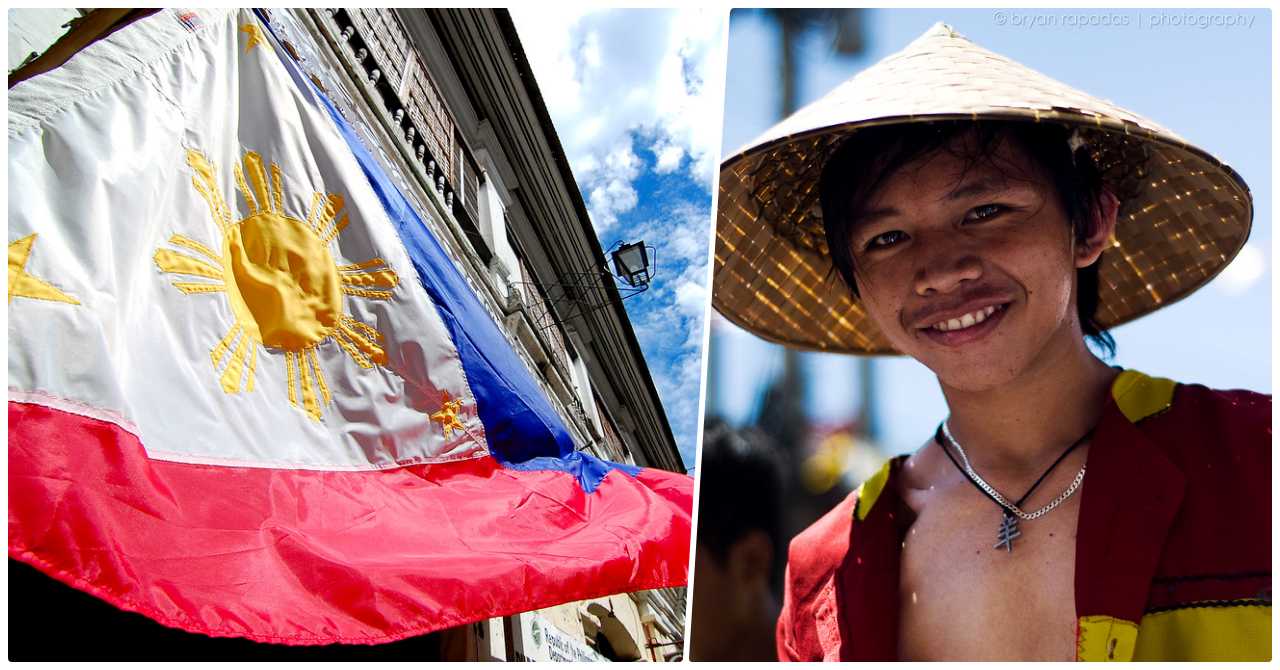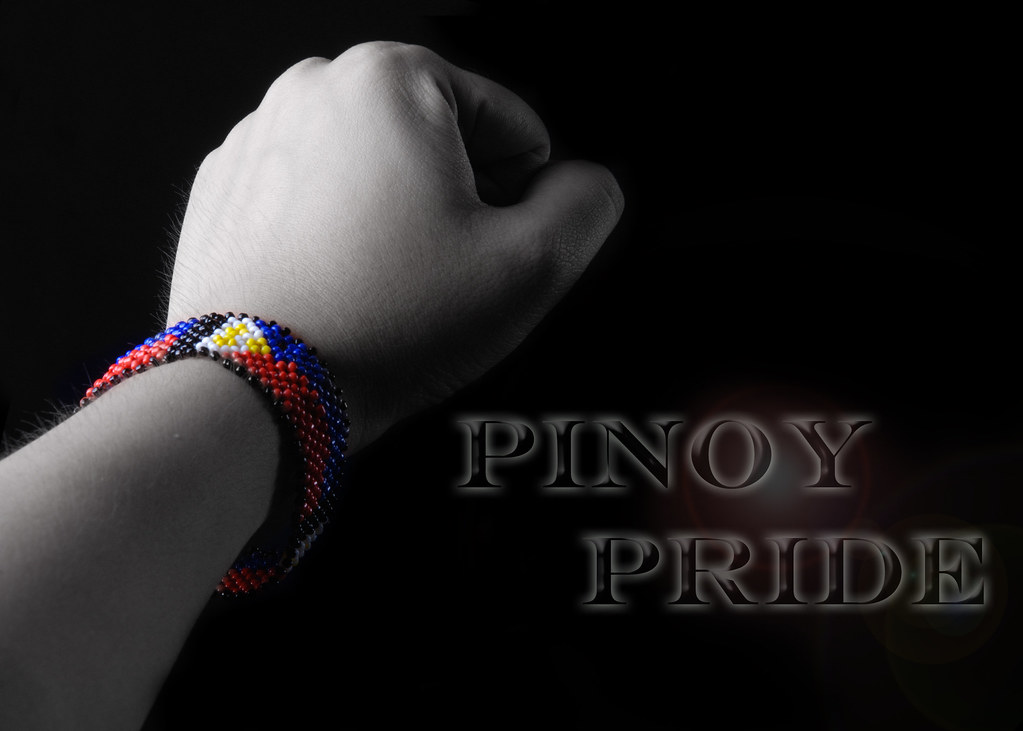“Pinoy” is a colloquial term used to refer to someone of Filipino nationality or descent. It is a word that carries with it a sense of pride and identity for Filipinos all over the world.
Also Read: 156 OFW Quotes and Captions to Inspire Filipinos
In this article, we will delve deeper into the meaning and origins of the word “Pinoy” and how it has come to symbolize the unique cultural heritage of the Filipino people.

What Does Pinoy Mean in English
“Pinoy” is a colloquial term that refers to a person of Filipino origin or descent. It is commonly used among Filipinos to refer to themselves or fellow Filipinos. The term is derived from the word “Filipino” and is often used interchangeably with it.
In English, the term “Pinoy” is often translated as “Filipino.”
FUN FACT: The word “Filipino” is derived from the name of King Philip II of Spain. The Philippines was named after King Philip II when Spanish explorer Ruy Lopez de Villalobos arrived in the Philippines in 1543 and named the islands Las Islas Filipinas (The Philippine Islands) in honor of the Spanish monarch.
The term “Filipino” originally referred to the Spaniards living in the Philippines but eventually came to refer to the native population as well. The term was later adopted by the Filipino people as a symbol of their national identity and used to refer to themselves as a distinct ethnic group.
What is Pinoy Baiting?
The term “Pinoy baiting” refers to the act of intentionally provoking or teasing a Filipino or someone of Filipino descent, often for the purpose of getting a reaction or causing offense.
Pinoy baiting is when non-Filipino individuals, including celebrities or YouTubers, create content online with the intention of attracting the attention of Filipinos.
This can take many forms, such as making fun of Filipino accents or mannerisms, using derogatory terms or slurs, or mocking Filipino culture or traditions.
Pinoy baiting can be seen as a form of discrimination or racism, and it can be hurtful and offensive to those who are targeted by it. It is important to recognize and reject this type of behavior and instead promote respect, understanding, and appreciation for all cultures and people.
Understanding Pinoy Baiting
Filipinos are a diverse group of people with a wide range of behaviors online, just like any other group of people. However, there are some general observations that can be made about the behavior of Filipinos online:
- Social media usage: Filipinos are known to be very active on social media platforms, such as Facebook, Twitter, and Instagram. Social media is an important part of their daily lives, and it is often used for communication, entertainment, and staying up-to-date with current events.
- Emojis and memes: Filipinos are also known for their use of emojis and memes in online communication. These are often used to express emotions or to add humor to messages.
- Politeness and respect: In general, Filipinos value politeness and respect in their online interactions. They tend to use honorifics and polite language, particularly when communicating with elders or people in positions of authority.
- Sense of community: Filipinos have a strong sense of community both online and offline. They often form groups and communities on social media platforms based on common interests or experiences, and they are supportive of each other.
- Sense of humor: Filipinos have a unique sense of humor, which is often reflected in their online behavior. They enjoy making jokes and using humor to lighten the mood, even in serious situations.
Filipino Reaction on Social Media
As with any diverse group of people, it is difficult to make generalizations about the Filipinos’ general reaction on social media. However, there are some common themes and trends that can be observed:
- Emotional response: Filipinos tend to have a strong emotional response to news and events, particularly those that affect their country or fellow Filipinos. They may express their emotions, such as anger, sadness, or joy, through posts and comments on social media.
- Support and solidarity: Filipinos are known for their strong sense of community and support for each other. They often use social media to express solidarity and support for causes and events that are important to them.
- Humor and positivity: Filipinos also have a great sense of humor and tend to use social media to share funny memes, videos, and other content. They also tend to focus on positive news and events, such as stories of Filipinos achieving success or acts of kindness.
- Opinionated: Filipinos are not afraid to share their opinions and thoughts on social media. They may engage in debates and discussions about various topics, including politics, religion, and social issues.
Overall, Filipinos’ general reaction on social media is diverse and multifaceted, reflecting their unique personalities, culture, and experiences.
What is the term Pusong Pinoy?
“Pusong Pinoy” is a Tagalog phrase that translates to “Filipino heart” in English. It is a term used to describe the strong sense of national pride and identity that many Filipinos possess, regardless of where they are in the world.
It represents the deep love and attachment that Filipinos have for their country, its people, culture, and traditions. The term “Pusong Pinoy” is often used to evoke a sense of unity and solidarity among Filipinos, particularly during times of adversity or national celebration.
What is a Proud Pinoy?
“Proud Pinoy” is a term used to describe a Filipino who is proud of their heritage, culture, and achievements. It refers to a sense of national pride and identity, often accompanied by a desire to promote and celebrate Filipino culture and accomplishments.

A Proud Pinoy may actively engage in activities or initiatives that showcase and promote Filipino culture, history, or traditions. They may also express their pride in being Filipino through social media, personal relationships, or other means.
What is Pinay?
“Pinay” is a colloquial term used to refer to a woman of Filipino descent. It is derived from the word “Filipina,” which is the feminine form of “Filipino,” the national demonym for people from the Philippines.

What is Expat Pinoy?
“Expat Pinoy” refers to a Filipino who is living and working in a foreign country. The term “expat” is short for “expatriate,” which refers to a person who is living in a country other than their own.
An Expat Pinoy or overseas Filipino worker (OFW) may have left the Philippines to pursue better job opportunities, higher education, or to seek a better quality of life for themselves and their families.
They may have adapted to the culture and lifestyle of their host country, while still retaining their Filipino identity and connection to their home country.
Summary
In conclusion, the term “Pinoy” is an integral part of Filipino culture and identity. It is a word that evokes a sense of national pride and belonging for Filipinos, wherever they may be in the world. The origins of the term can be traced back to the 1920s and 30s, when it was used as a derogatory term by Americans to refer to Filipinos.
However, over time, the word has been reclaimed by Filipinos and transformed into a positive expression of their identity and heritage. Today, the term “Pinoy” is widely used and celebrated, and it represents the unique cultural richness and diversity of the Filipino people.
READ NEXT: [PINOY PRIDE] Pinay Nurse in UK Recognized Among Queen Elizabeth II’s New Year Honor List




